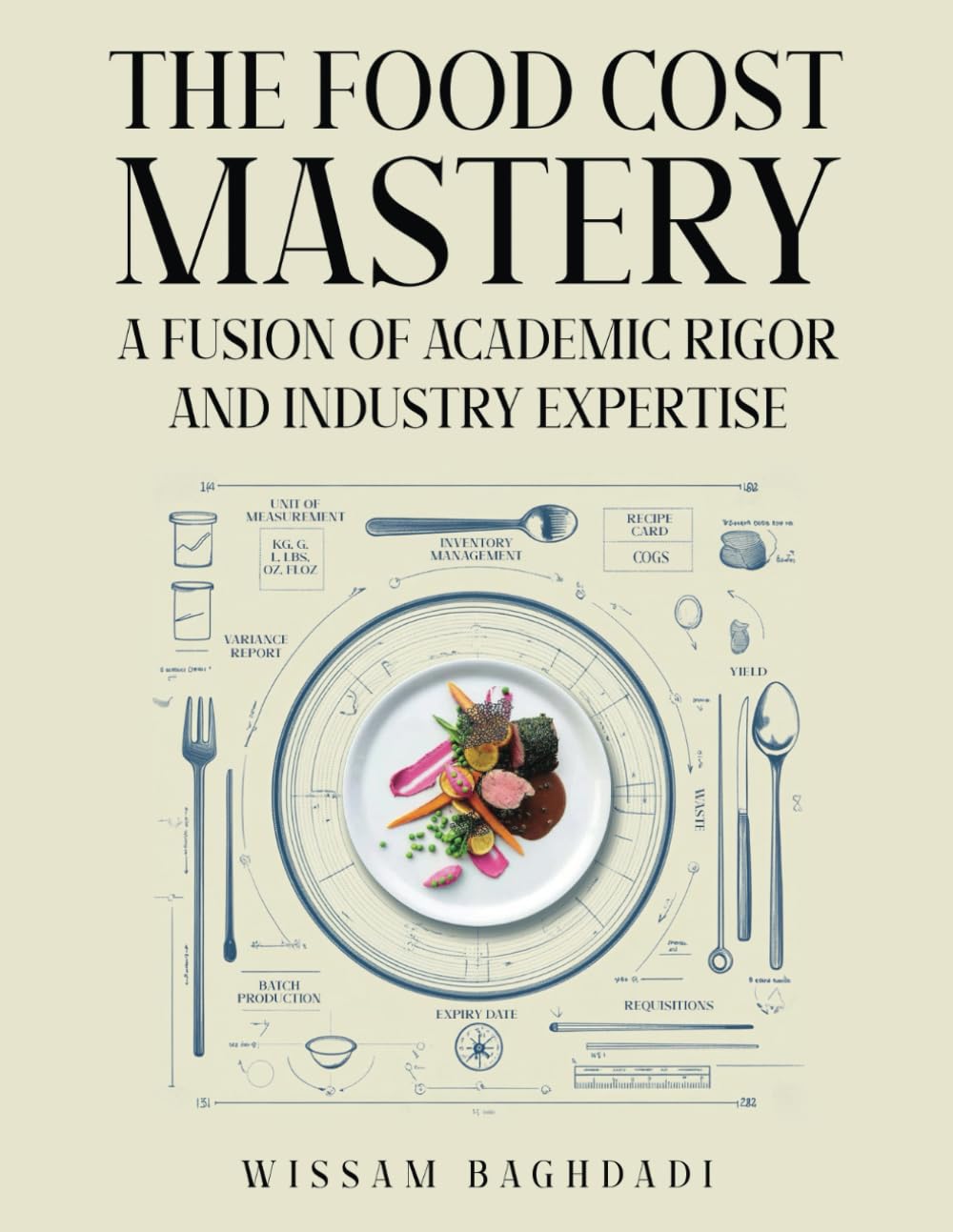
The restaurant industry faces growing challenges in supply chain management, from ingredient traceability to combating fraud. Blockchain technology is emerging as a revolutionary solution, offering enhanced transparency, efficiency, and security. Wissam Baghdadi’s The Food Cost Mastery: Fusion of Academic Rigor and Industry Expertise highlights how blockchain can transform food cost management, creating a more resilient and trustworthy system for restaurateurs.
What Is Blockchain Technology?
At its core, blockchain is a decentralized digital ledger that records transactions across multiple systems securely and transparently. Each transaction is stored as a “block,” and these blocks are linked to form a “chain.”
In the context of food costing, blockchain can track every step of the supply chain, from sourcing ingredients to their arrival at the restaurant. This creates an immutable record, ensuring accountability and traceability.
Enhancing Traceability
Traceability is crucial for food safety and quality assurance. Blockchain allows restaurateurs to monitor the journey of ingredients in real time.
1. Ingredient Sourcing
With blockchain, restaurants can verify the origins of ingredients, ensuring they meet ethical and quality standards. For instance, a blockchain ledger can confirm whether seafood is sustainably sourced or produce is organic.
2. Monitoring Expiry Dates
Blockchain systems can store data on production and expiration dates, helping restaurants manage inventory more effectively. Baghdadi emphasizes that integrating this data with inventory management systems can minimize spoilage.
3. Real-Time Updates
Blockchain provides live updates on shipment status, reducing uncertainties and ensuring timely delivery of ingredients.
Reducing Fraud
Fraudulent practices, such as mislabeling products or substituting lower-quality ingredients, pose significant risks to restaurants. Blockchain combats these challenges by creating an unalterable record of transactions.
1. Authenticity Verification
Restaurants can use blockchain to verify the authenticity of premium products, such as truffles or specialty cheeses, protecting their reputation and ensuring customer trust.
2. Supplier Accountability
Every transaction on a blockchain is time-stamped and verified, making it easier to identify and address discrepancies. Baghdadi highlights how this fosters stronger relationships with reliable suppliers.
Streamlining Supply Chains
Blockchain simplifies the complex logistics of supply chain management by automating processes and reducing inefficiencies.
1. Smart Contracts
Smart contracts are self-executing agreements stored on the blockchain. They automatically trigger actions, such as payments, when predefined conditions are met. Baghdadi notes that smart contracts can expedite transactions and reduce administrative overhead.
2. Reducing Middlemen
Blockchain enables direct transactions between restaurants and suppliers, bypassing intermediaries and lowering costs.
3. Inventory Integration
By integrating blockchain with inventory management systems, restaurants can maintain real-time records of ingredient usage and reorder levels, ensuring seamless operations.
Future Applications in Restaurants
Baghdadi envisions a future where blockchain is fully integrated into restaurant operations. For example:
- Digital Menus: Blockchain could provide detailed information on each dish’s ingredients, origins, and sustainability certifications, enhancing customer confidence.
- Waste Reduction: Tracking food from farm to table can identify inefficiencies, reducing waste throughout the supply chain.
Blockchain technology is poised to revolutionize food cost management, offering unparalleled transparency and efficiency. As detailed in The Food Cost Mastery, adopting blockchain can enhance traceability, reduce fraud, and streamline supply chains, ultimately driving profitability and customer trust. For restaurants looking to stay ahead in a rapidly evolving industry, blockchain represents the future of food costing.
Leave a Reply